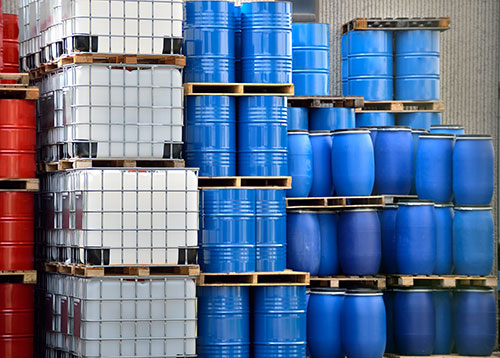Returnable transport items (RTIs) are among the most useful equipment throughout the supply chain. How is RFID used for RTI management?
RTIs make it possible to move materials throughout the production process. But without a proper method to track RTI containers, companies risk wasting valuable resources through theft and loss.
Avoiding RTI Shrinkage
Nearly a quarter of RTI shrinkage 1 can be attributed to damage, loss, stockpiling, or other inefficiencies. This greatly reduces the efficiency of a supply chain operation. Ultimately this impacts an organization’s bottom line.
Deploying a system to track reusable containers is essential to maximizing the value of RTIs. By integrating hardware and software into the standard flow of RTI equipment, organizations can account for the real-time status of an item’s condition and location.
RFID Tracking for RTI
An RFID system is one of the most effective and efficient ways of overseeing RTI management. Built using a network of connected Internet-of-Things (IoT) devices, RFID systems track returnable containers.
Small, wireless RFID tags can be affixed to nearly any type of reusable container. Transmitting signals to receivers connected to RFID software, companies can have a real-time view to the status of a bin, pallet, or any other type of RTI.
Integrating RFID technology into RTIs can deliver significant value to supply chain companies. By reducing the amount of shrinkage, companies can prolong the life of RTIs by ensuring that equipment doesn’t simply disappear from a location.
Also, real-time tracking eliminates the need for workers to track down items. Whether it’s boosting productivity or accounting for lost items, RFID makes it easy to save costs and maximize efficiencies.
Radley’s RFID solutions offer best-in-class hardware, middleware, and software for container tracking. Delivering real-time visibility, Radley helps manufacturers and warehouses manage the flow of reusable equipment.
For more information about Radley’s RFID solutions, contact a product specialist today.

